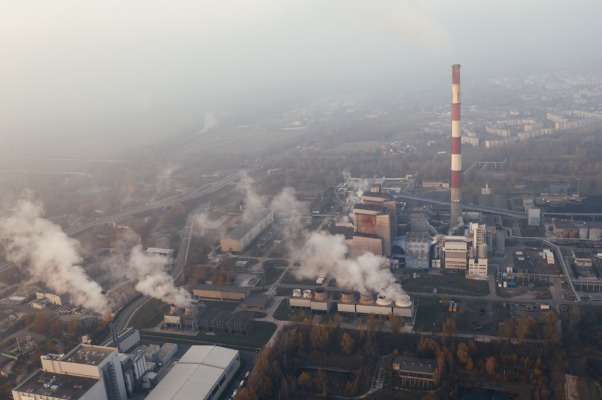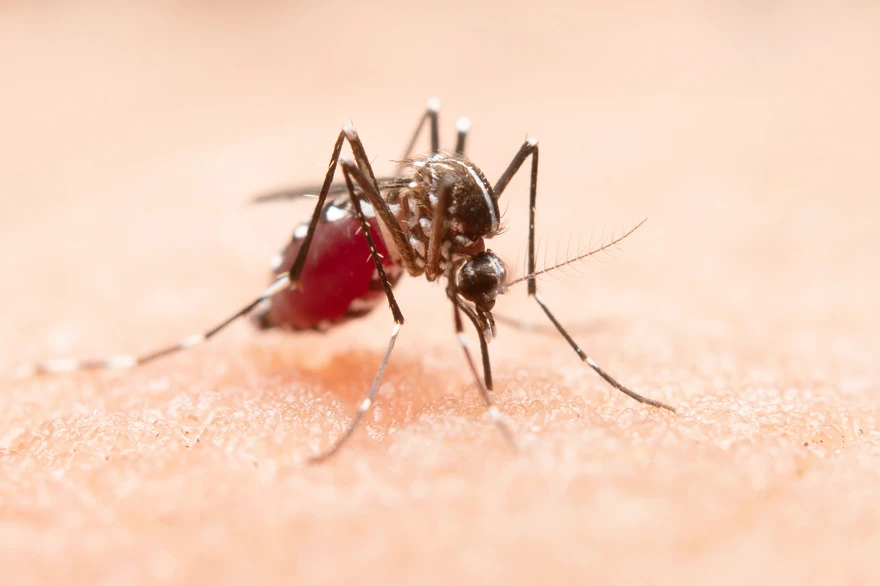Preventive Healthcare
10 Air Pollution Diseases You Need To Be Aware Of
150452 Views
0

Air pollution is a silent killer. It’s responsible for millions of deaths each year, and the number is only increasing as industrialization and urbanisation continue to rise. What’s even more alarming is that air pollution doesn’t just cause respiratory problems. It’s been linked to an array of other diseases, some of which are life-threatening. In this blog post, we will explore 10 of the most common air pollution diseases. From heart disease to cancer, these are the diseases caused by air pollution that you need to be aware of if you want to protect yourself and your loved ones from its dangers.
List Of 10 Common Diseases Caused By Air Pollution
Air pollution is a major environmental and health risk. Here is a list of 10 diseases caused by air pollution.
- Cardiovascular Diseases
- Cancer
- Neurological Disorders
- Gastrointestinal Disorders
- Kidney Diseases
- Liver Diseases
- Skin Diseases
- Asthma
- Bronchitis
- Chronic Obstructive Pulmonary Disease
Cardiovascular Diseases
Pollution has been linked to an increased risk of cardiovascular disease. It can lead to inflammation and damage to the heart and blood vessels. Studies have shown that exposure to air pollution can increase the risk of heart attack, stroke, and other forms of heart disease.
There are a few ways in which air pollution can contribute to cardiovascular disease:
- Particulate matter can enter the lungs and cause inflammation. This can lead to an increase in blood pressure and damage to the lining of the arteries.
- Pollutants can trigger changes in heart rate and rhythm, which can lead to arrhythmias or cardiac arrest.
- Long-term exposure to air pollution has been linked with an increased risk of atherosclerosis, or hardening of the arteries.
Cancer
Cancer is one of the most common air pollution diseases. It is caused by exposure to carcinogenic airborne particles, such as those released from burning fossil fuels.
Cancer can develop in any organ of the body. But, it is most commonly found in the lungs. Non-small cell lung cancer is a more common type of lung cancer. It accounts for about 80% of all cases. It is generally less aggressive than small-cell lung cancer and has a better prognosis.
Smoking is the leading cause of lung cancer too. It is responsible for about 85% of all cases. Other risk factors include exposure to secondhand smoke, radon gas, asbestos, and air pollution.
Neurological Disorders
Air pollution has been linked to a variety of neurological disorders as well. Some of the illnesses include Alzheimer’s disease and Parkinson’s disease.
Alzheimer’s disease is a degenerative brain disorder. It leads to memory loss and cognitive decline. Studies have shown that air pollution can accelerate the progression of Alzheimer’s disease.
Parkinson’s disease is a neurodegenerative disorder. It affects movement and coordination. Air pollution has been linked to an increased risk of developing Parkinson’s disease.
Gastrointestinal Disorders
Several gastrointestinal disorders have been linked to air pollution, including irritable bowel syndrome, Crohn’s disease, and ulcerative colitis. Studies have shown that people who live in areas with high levels of air pollution are more likely to suffer from these conditions.
Symptoms of gastrointestinal disorders include abdominal pain, diarrhoea, constipation, and bloating. Gastrointestinal disorders can be very serious and even life-threatening if they are not treated properly.
Kidney Diseases
Several kidney diseases can be caused by air pollution, including:
-Chronic kidney disease: This is a long-term condition that can lead to kidney failure. It is caused by the accumulation of toxins in the body, including those from air pollution.
-Acute kidney injury: This is a sudden and potentially reversible loss of kidney function. It can be caused by exposure to high levels of air pollution, particularly particulate matter.
-Dialysis: This is a treatment used for people with renal failure. It involves filtering the blood to remove waste products and excess fluid.
Liver Diseases
Exposure to air pollution is associated with an increased risk of metabolic dysfunction-linked fatty liver disease. Fatty liver disease is the accumulation of fat in the liver, which can lead to inflammation and scarring. Hepatitis is an inflammation of the liver that can be caused by a virus or other infection. Cirrhosis is a chronic condition that results in the hardening and scarring of the liver.
Skin Diseases
There are a variety of skin diseases that have been linked to air pollution, including eczema, psoriasis, and acne.
Eczema is a condition that causes the skin to become dry, itchy, and inflamed. It is thought that air pollution can trigger or worsen eczema flare-ups.
Psoriasis is a chronic autoimmune condition that causes the skin to develop raised, red patches covered with white scales. Air pollution has been shown to trigger psoriasis flare-ups.
Acne is a common skin condition that causes pimples and blackheads. Air pollution has been linked to an increase in acne breakouts.
Asthma
Asthma is a condition in which the airways narrow and swell, and produce extra mucus. This can make breathing difficult and trigger coughing, wheezing, and shortness of breath.
Asthma is often triggered by environmental factors such as air pollution, cold weather, or pollen. It is important to be aware of these triggers and try to avoid them if possible. If you have asthma, it is also important to have an asthma action plan in place so that you know what to do if you have an asthma attack.
Bronchitis
Bronchitis is another common air pollution-related disease. It occurs when the bronchi, or airways, become inflamed and irritated. This can be caused by exposure to airborne irritants, such as smoke, dust, or chemical fumes. Bronchitis can also be caused by viral infections. Symptoms of bronchitis include coughing, wheezing, shortness of breath, and chest pain. Bronchitis is often treated with medications, such as bronchodilators and corticosteroids. In severe cases, hospitalisation may be necessary.
Chronic Obstructive Pulmonary Disease
Chronic Obstructive Pulmonary Disease (COPD) is a lung condition that makes it hard to breathe. COPD is caused by long-term exposure to harmful particles in the air, such as smoke from cigarettes or factory emissions. People with COPD often experience symptoms like shortness of breath, wheezing, and coughing. In severe cases, COPD can be fatal.
Conclusion
Air pollution is a serious global problem that contributes to a wide range of diseases. Many of these diseases are preventable. So, it is important to be aware of them and take steps to protect yourself from air pollution. We hope this list has helped you understand the risks associated with air pollution. Now, it is your responsibility to avoid them. If you showcase any of the above symptoms, consult a doctor for better guidance. Visit your nearest Metropolis lab to get professional help and accurate test results.























 WhatsApp
WhatsApp